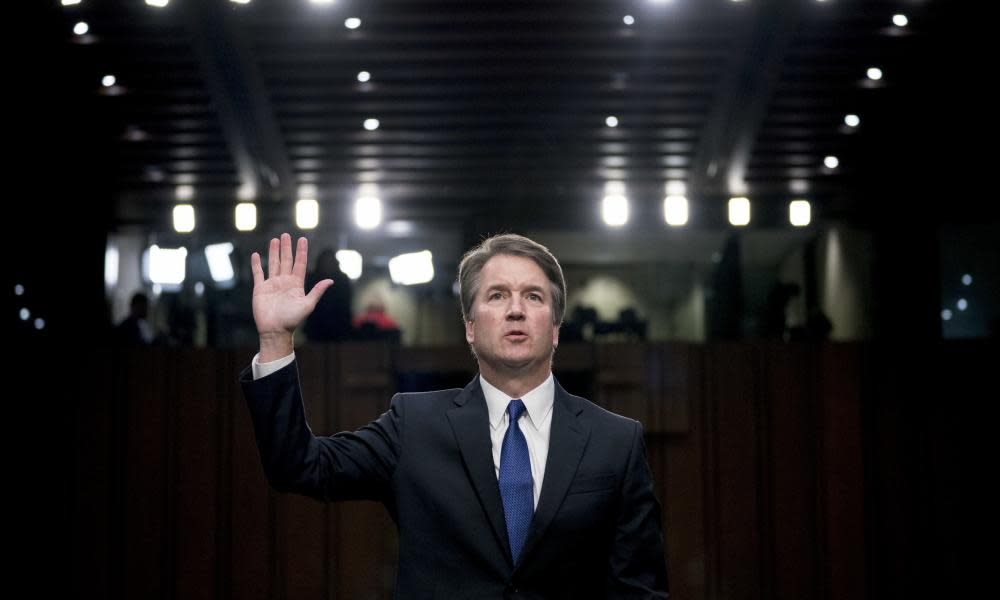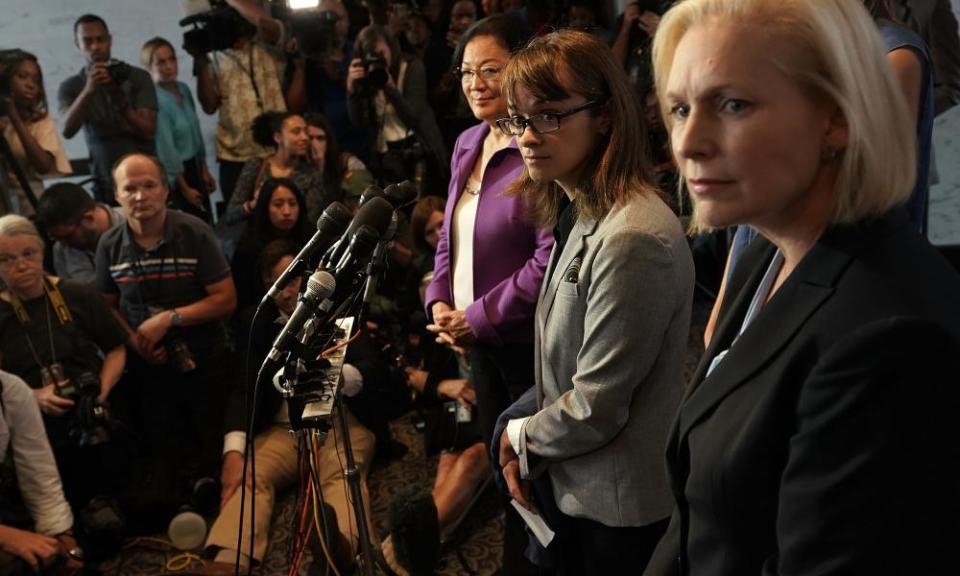Why I find the Kavanaugh/Ford case so unsettling

It’s hard to describe how it feels to be a woman living through the #MeToo era. Not at the centre of anything, but reflecting on your personal experiences. In the beginning I remember just a dark rage, followed by a giddiness that something really did seem to be changing. Then a forced rationality, an awareness that things must not swing too far just because emotions were high and, by God, men had it coming.
But lately, it’s just been surprising. For me and many of the women around me, the Brett Kavanaugh case in the US has triggered some unexpectedly profound emotions. There is something of the horror movie about the story of how Donald Trump’s supreme court nominee stands accused of a sexual assault that was allegedly committed more than 30 years ago.
What she has done for many women is trigger an excavation of the things they had buried because they wanted to rebuild
It reminds many of us how there are men waiting to resurface from the depths of our memories; perhaps it is the guy who “playfully” sexually bullied you in secondary school now showing up on social media, all cheerful, happily established with a picture-perfect family and a completely different recollection of your interaction.
He will ask genuinely why the two of you never stayed in touch. Or maybe someone who ruined your reputation in university by making up stories (with just enough truth in them to rob you of complete deniability) popping up in the public eye, perhaps not as a nominee to the highest court in the land, but a lauded expert, an actor, a journalist or political activist, and suddenly you’re 17 and burning with shame again. Despite all your steel and resolution, all the vulnerabilities that were there when that early sexual undermining occurred are still in there, frozen in time, stacked inside you like babushka dolls.

When Kavanaugh was first accused of attempting to force himself on Christine Blasey Ford when they were in high school, the detail that stayed with me was that Ford first mentioned him to her therapist years ago, in the context of her fear that he would one day be nominated to the supreme court. And her worst dream came true: he got the nomination, all cheerful and happy and established, the “carpool dad”, the “true intellectual”, the man of “impeccable credentials”.
There is something doubly traumatic when these incidents happen at a young age. It’s not only the event and the bewildering inability to deal with it at the time, but the skewed structure of the world that means the odds of the teenage boy becoming a powerful man are much higher than those of you becoming a powerful woman.
Women such as Ford have to carry their wounded teenage selves inside them and watch the man who allegedly inflicted these wounds breeze through life becoming more important, connected and influential, unburdened by his past actions.
Scholars call it “the accumulation of disadvantage”; the process by which the gender playing field is unlevelled over time as small biases compound to create a professional world weighted in favour of men. When you add to that all the ways that women can be degraded sexually by men from a young age, there is an accumulated diminishment and corrosion of confidence.
To walk into an imbalanced world like that with your ostensibly “minor” incident, your drunken run-in with a teenage boy in a bedroom at a party, and ask for redress is basically suicide by patriarchy.
To walk into a world like that where the accused man has the US president on his side and take a swing, you had better not miss. But that is what is all the more moving about Ford’s decision to come forward. It is very likely that she will miss the target, and very likely knows that. But what I suspect she has done for many women is trigger an excavation of all the things that they had buried and tried to minimise because they wanted to forget and rebuild, because they were young, and because it was such a long time ago, and because really, how can you bring your old irrecoverable teenage pain and demand that it be salved now, after all these years?
That excavation to me, at least, is beginning to reveal how the strength is sometimes not in forgetting, but in remembering, and reclaiming. In unfreezing that young frightened girl who you could not help for all these years and animating her in the body of an older, more certain woman. All signs so far still point towards Kavanaugh’s confirmation, but the reckoning and resolution is not in securing vindication, but in demanding it.
• Nesrine Malik is a Guardian columnist

 Yahoo News
Yahoo News 
